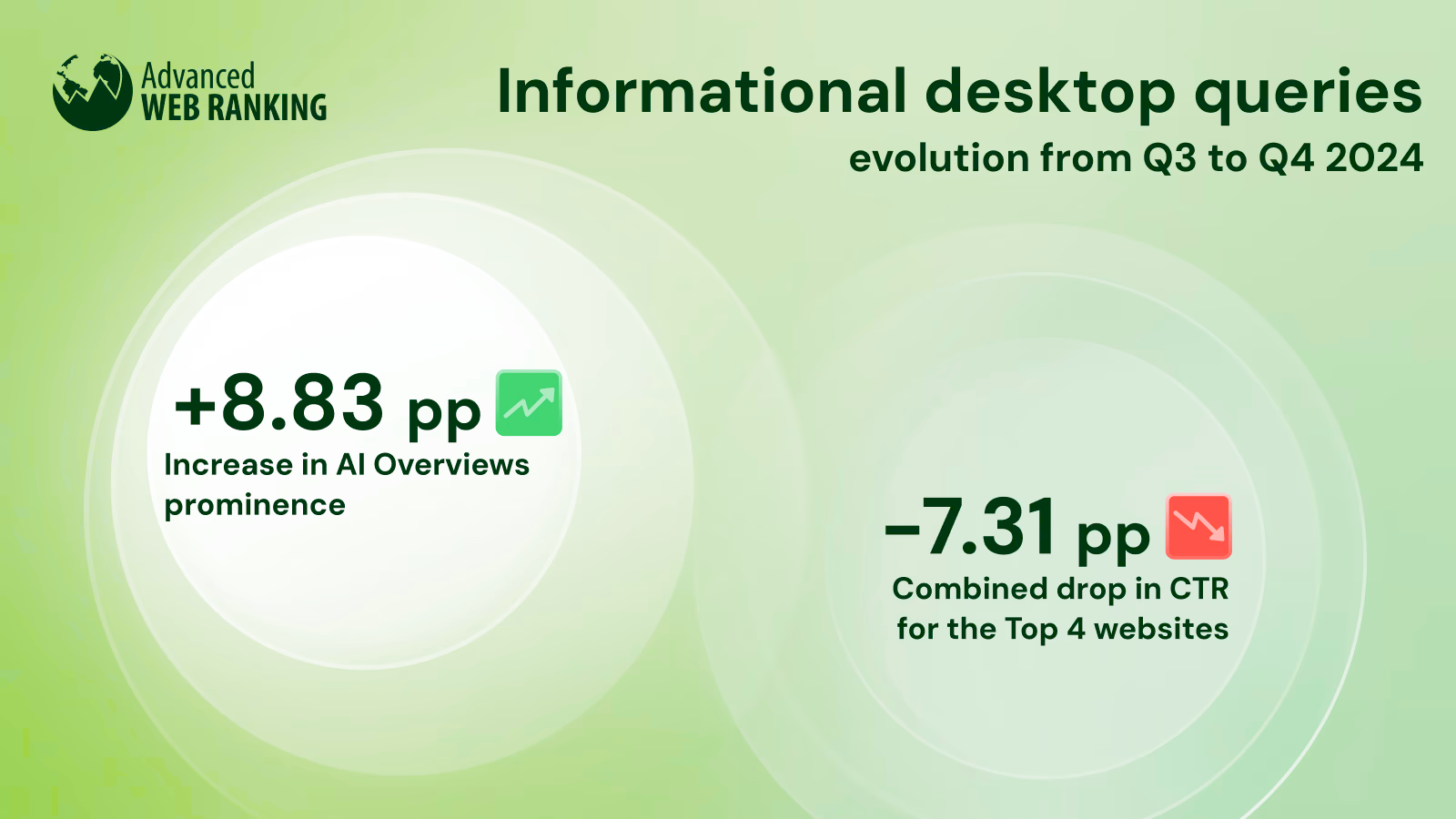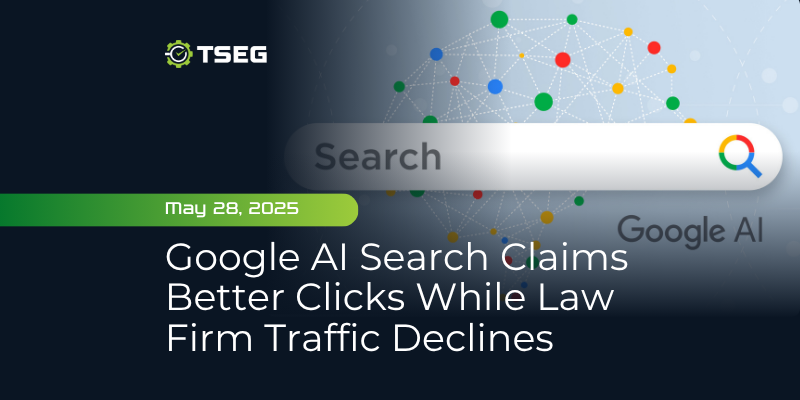Google AI Search Claims Better Clicks While Law Firm Traffic Declines
Posted on Wednesday, May 28th, 2025 at 3:42 pm
A New Message from Google Amid Growing Concern
At this year’s Google Marketing Live press session, top executives took the stage to defend one of the company’s most controversial recent updates: AI-powered search. As independent data shows steep traffic declines for content publishers, Google’s new pitch is that fewer clicks might not be a bad thing.
The panel included Jenny Cheng, Vice President of Google’s Merchant Shopping division, Sean Downey, President of Americas & Global Partners, and Nicky Rettke, YouTube’s VP of Product Management. Each echoed the same core message—AI is making search better, not worse.
When pressed on reports of falling organic traffic, Google didn’t share numbers. Instead, it described changes in user behavior: more questions asked, more refinements, more intention behind each visit. What matters, they said, isn’t how many people click, but who does.
The only problem is that there’s no data to support any of it.
“Qualified Clicks” vs. Lost Visits
Google is standing by its claim that AI-enhanced search is producing more “qualified” visits, even as data shows a consistent drop in traffic to websites appearing in organic results.
Independent studies have confirmed that when AI overviews appear at the top of a search page, traditional organic links see significantly fewer clicks. That traffic doesn’t seem to be going elsewhere; it’s just disappearing. But instead of addressing the drop directly, Google is reframing what success looks like.
One executive at the press session explained that users are now entering more follow-up queries before clicking out to a website. In other words, people are asking more questions, not necessarily making more visits. Google reported a 10% increase in query volume overall, which it interprets as a sign of deeper engagement.
The company’s message is clear: when a user finally does click, it’s a more intentional action. The implication is that even if publishers are getting fewer visits, the people who do arrive are more likely to stay and convert. But when asked for supporting metrics, Google had none to offer. There was no information about bounce rates, time on site, or conversion patterns, just the assertion that this is better for everyone.
For publishers and marketers, that’s a tough sell.

Google Ads Stay Strong While Organic Struggles
While publishers watch their organic traffic drop, Google says its advertising business is doing just fine. According to the company, ad performance remains consistent whether the results are shown in standard search or alongside AI overviews.
That might sound like good news, but for content creators and firms that rely on organic visibility, it raises deeper concerns. If AI features are reducing the number of unpaid visits while paid placements continue to perform at the same level, the balance of power tilts even further toward advertisers.
The competition for organic space is getting tighter, while the need to spend on ads is becoming harder to avoid. If fewer users are reaching websites through unpaid links, paid visibility becomes the fallback. That comes with a cost, both financially and strategically.
Google leaves a clear takeaway. What benefits Google’s business model may not benefit the firms trying to grow theirs.
Search Behavior Is Changing
Google’s explanation for the drop in organic clicks rests on one idea: users are searching differently. According to executives at the press session, people now phrase queries in a more conversational way and expect direct answers without having to dig through multiple websites.
To meet those expectations, Google says it is redesigning how it delivers information. Features like AI overviews and AI Mode aim to respond to broader, more open-ended questions with instant summaries. That means fewer users are clicking out to source pages, especially when they feel they already have what they need.
For law firms, we’ve expressed that this calls for a change in content strategy. Traditional SEO tactics are no longer enough. The firms that will continue to perform well are the ones that restructure their content around how users now interact with search today.
Here are a few concrete adjustments worth making:
- Write answers to common legal questions in plain language
- Build out FAQ sections that target long-tail queries
- Incorporate video content to increase engagement and visibility across formats
These changes match how real people are consuming information. When content feels useful and specific to the question being asked, it stands a better chance of surfacing in an AI-influenced search result.

Why Law Firms Can’t Wait for Clarity
Google’s message is optimistic, but vague. Publishers are being told that AI-generated search results are producing better user experiences, even as their own traffic reports suggest otherwise. And with no way to separate clicks from AI overviews, traditional links, or AI mode in Google’s reporting tools, there is no clear method to validate what is working.
This lack of transparency puts law firms in a difficult position. They must operate in an environment where visibility is harder to track, and outcomes are tougher to measure.
That is where TSEG comes in.
We help law firms build marketing strategies that do not depend on guesswork. Our team develops content that speaks directly to today’s search behavior, backed by measurement systems that reveal what is actually driving results. From SEO to paid campaigns, we work with firms to stay competitive in an increasingly AI-influenced search world.
When Google moves fast and data disappears, law firms need a partner that can keep them seen, found, and trusted. TSEG can be that partner. Contact us today.
